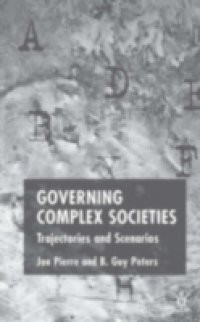Governing Complex Societies outlines a typology of different models of governance, ranging from a state-centric model to the "governing without government" model. The typology is based in dimensions on actors, processes and outcomes. Using this typology, the authors conclude that both the state-centric model and the "governing without government" model tend to produce suboptimal governance. Instead, governance models between these two extremes seem to be better geared to combine points of contact with society while at the same time being able to make autonomous decisions. This analysis is applied to different aspects of contemporary governance like changing intergovernmental relationships and linkages between the EU and domestic institutions.

